Category Archives: Tests and Assessments
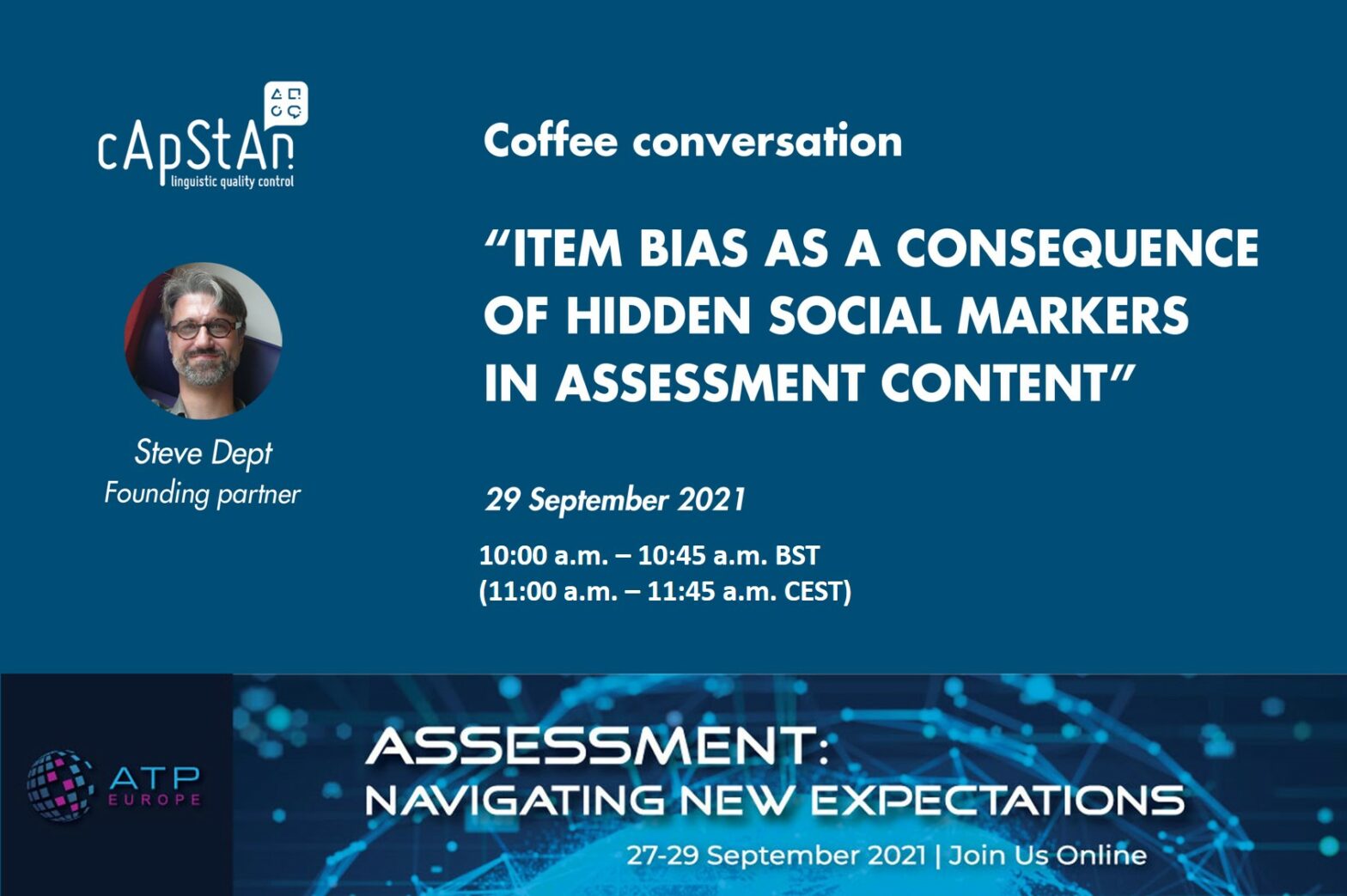
Item bias as a consequence of hidden social markers in assessment content
If part of the assessment content is loaded with (hidden) social markers that tend to privilege candidates from certain types of socio-economical backgrounds, this may introduce construct-irrelevant variance and item bias. cApStAn founder Steve Dept’s coffee conversation at E-ATP 2021 is conceived as an exchange on how to ensure that the content of an assessment …
“Item bias as a consequence of hidden social markers in assessment content”
Read More
Recent study analyses the evolution of socio-economic disparities in literacy skills ages 15-27 in 20 countries
by Pisana Ferrari – cApStAn Ambassador to the Global Village Francesca Borgonovi, from University College London, UK and Artur Pokropek, Educational Research Institute (IBE), Warsaw, Poland, take a broader perspective on socio-economic disparities in educational achievement and attainment a very well-researched study titled: “The evolution of socio-economic disparities in literacy skills from age 15 to …
Read More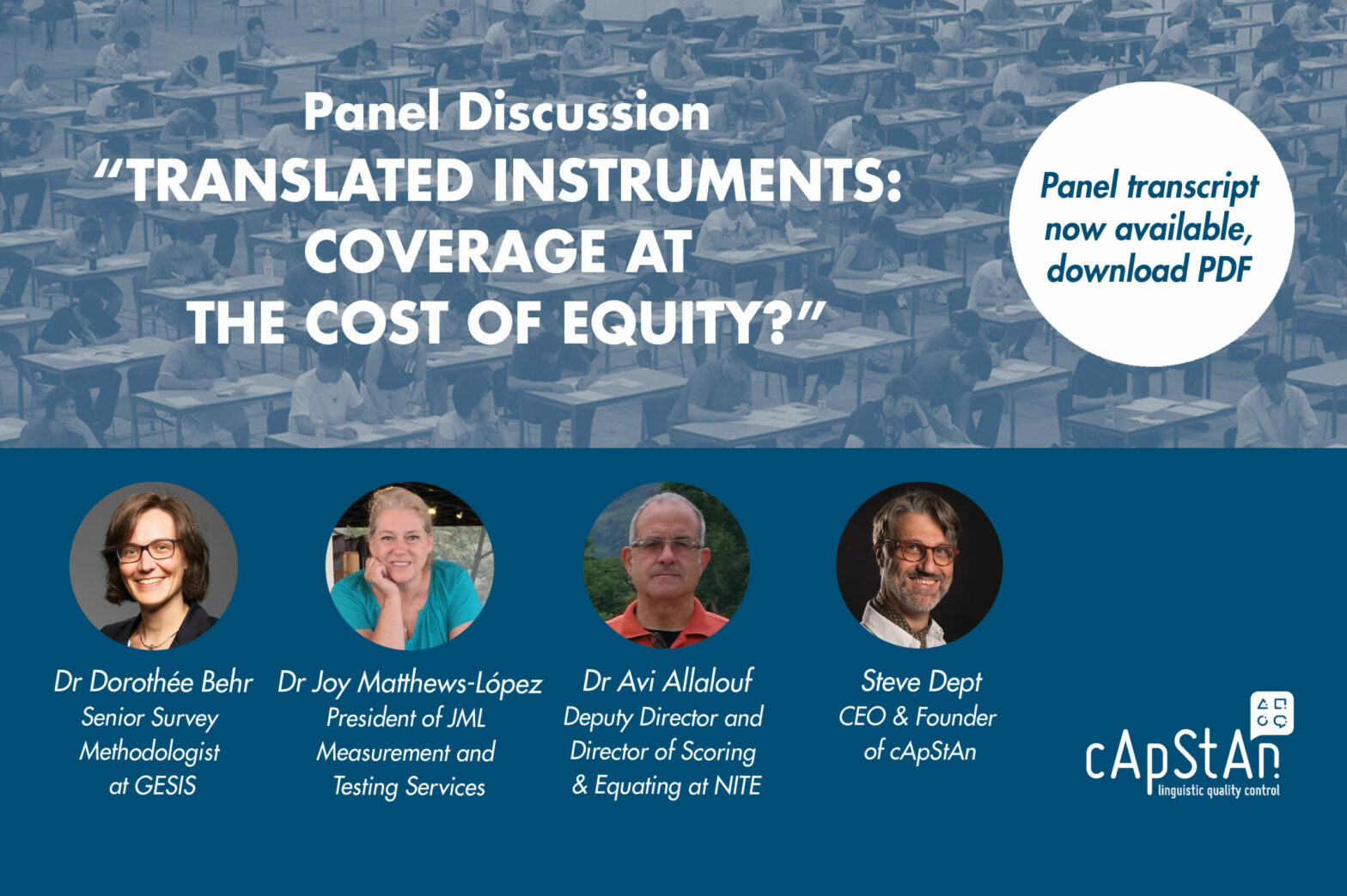
Detailed Transcript: Translated Instruments: Coverage at the cost of Equity?
Standardized tests and questionnaires are used in a variety of contexts: admission to university, certification, hiring, or collecting information about background variables, for example. Tests and surveys may come in more than one language. While this broadens the coverage, it may create disparities if the different language versions are not equivalent. cApStAn’s May 5 online …
“Detailed Transcript: Translated Instruments: Coverage at the cost of Equity?”
Read More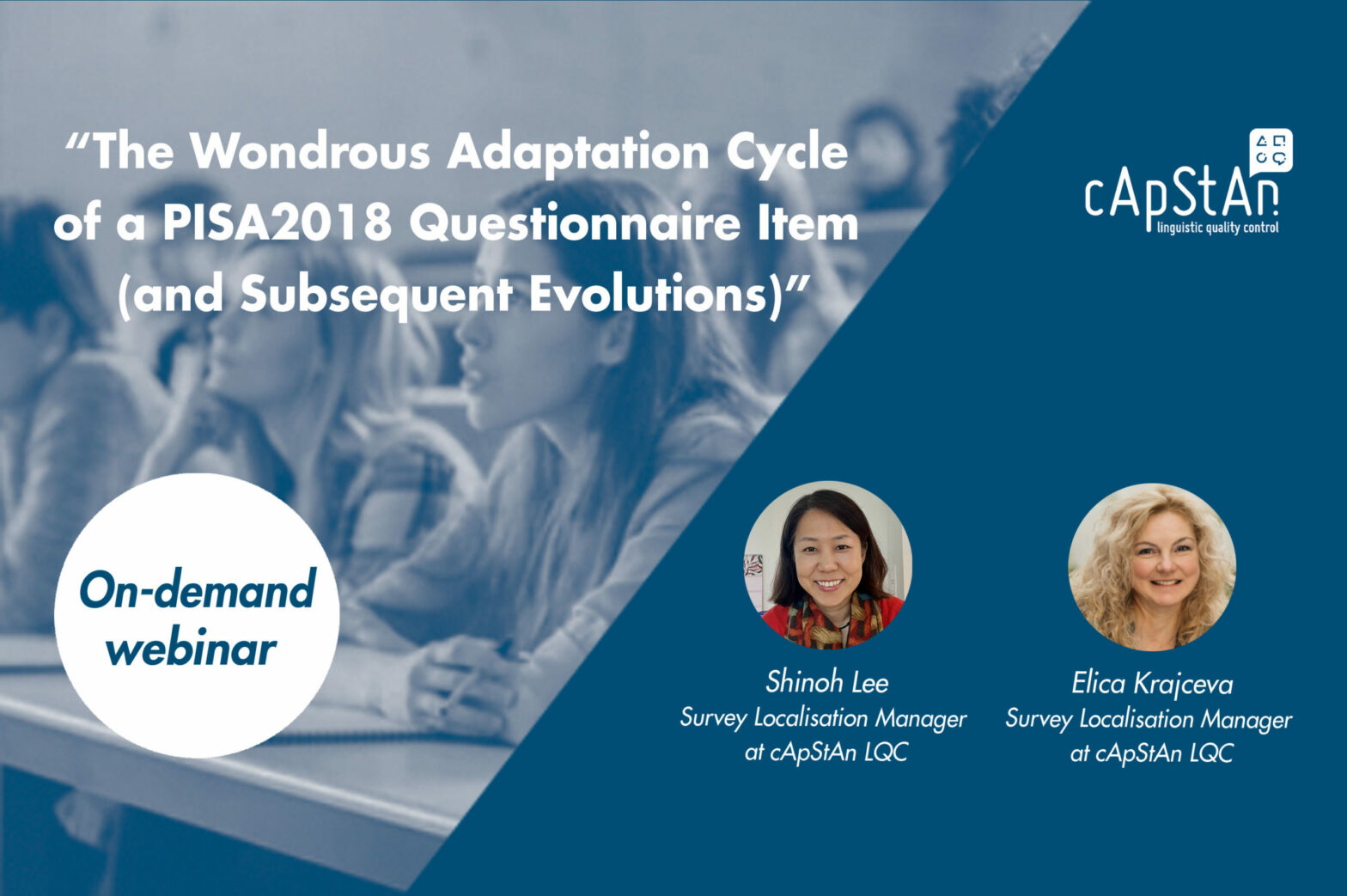
The Wondrous Adaptation Cycle of a PISA2018 Questionnaire Item (and Subsequent Evolutions)
The Wondrous Adaptation Cycle of a PISA2018 Questionnaire Item (and Subsequent Evolutions) Speaker: Shinoh Lee, Survey Localisation Manager at cApStAn LQC Contributor: Elica Krajçeva, Survey Localisation Manager at cApStAn LQC Recorded on 09.03.2021 | Duration: 20 minutes Sophisticated translation designs have become the norm in high-stakes tests and are essential in order to collect comparable …
“The Wondrous Adaptation Cycle of a PISA2018 Questionnaire Item (and Subsequent Evolutions)”
Read More
The Role of Linguistic Quality Assurance after Field Trialling
Re-edited by Andrea Ferrari, Co-founder at cApStAn, from a presentation made at CSDI Washington 2012 by Steve Dept, Andrea Ferrari and Juliette Mendelovits The design of major international comparative studies such as OECD’s PISA (Programme for International Student Assessment) or IEA’S TIMSS (Trends in International Mathematics and Science Study) includes a Field Trial (FT) phase …
“The Role of Linguistic Quality Assurance after Field Trialling”
Read More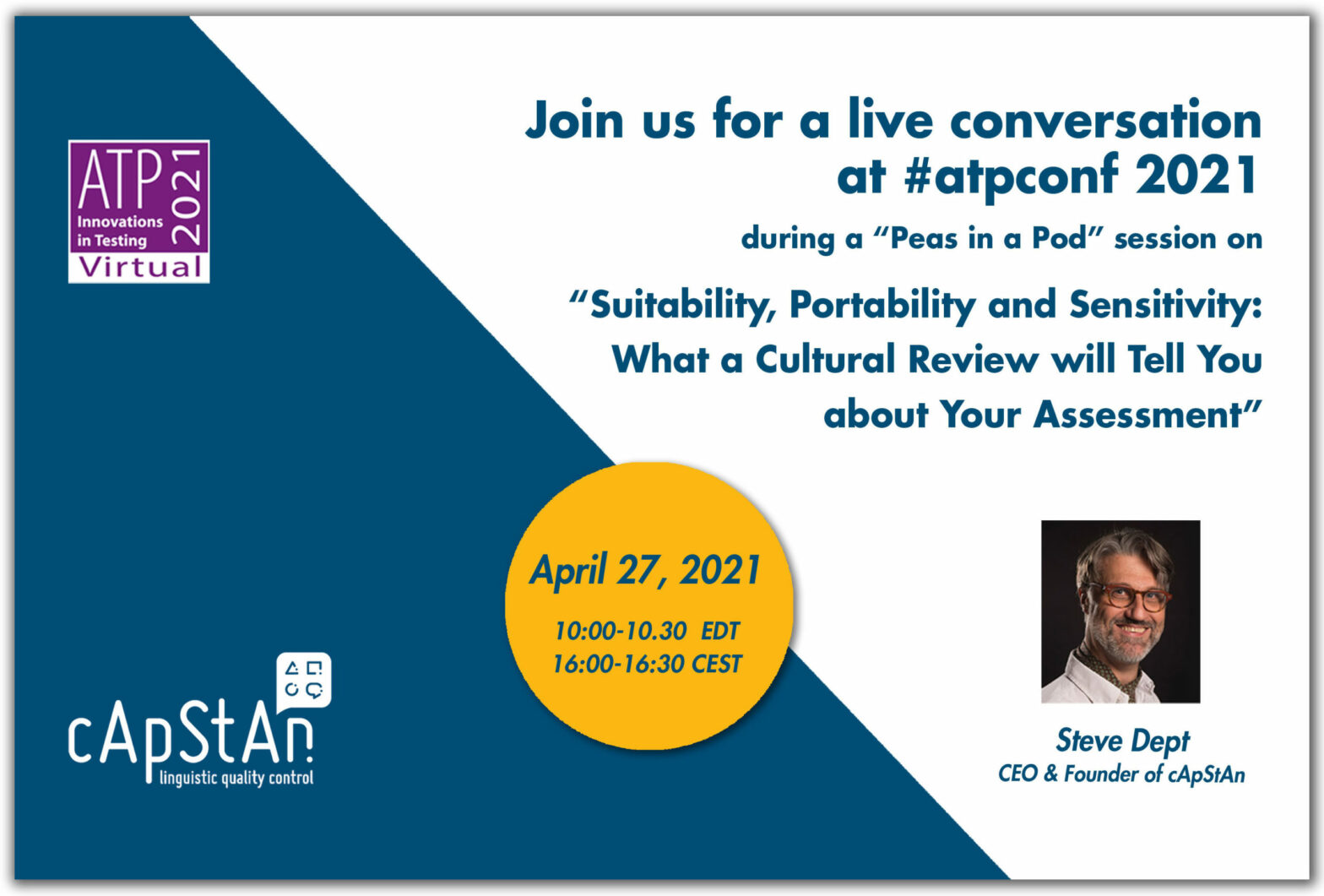
Suitability, Portability and Sensitivity – What a Cultural Review will Tell You about Your Assessment
An assessment is designed within a given cultural environment. If you plan to administer the test in regions with different cultural backgrounds, how do you evaluate the cultural divide? Try a cultural review, even if the test is to be delivered in English only but, say, in the UAE or in South Africa. Culture may …
Read More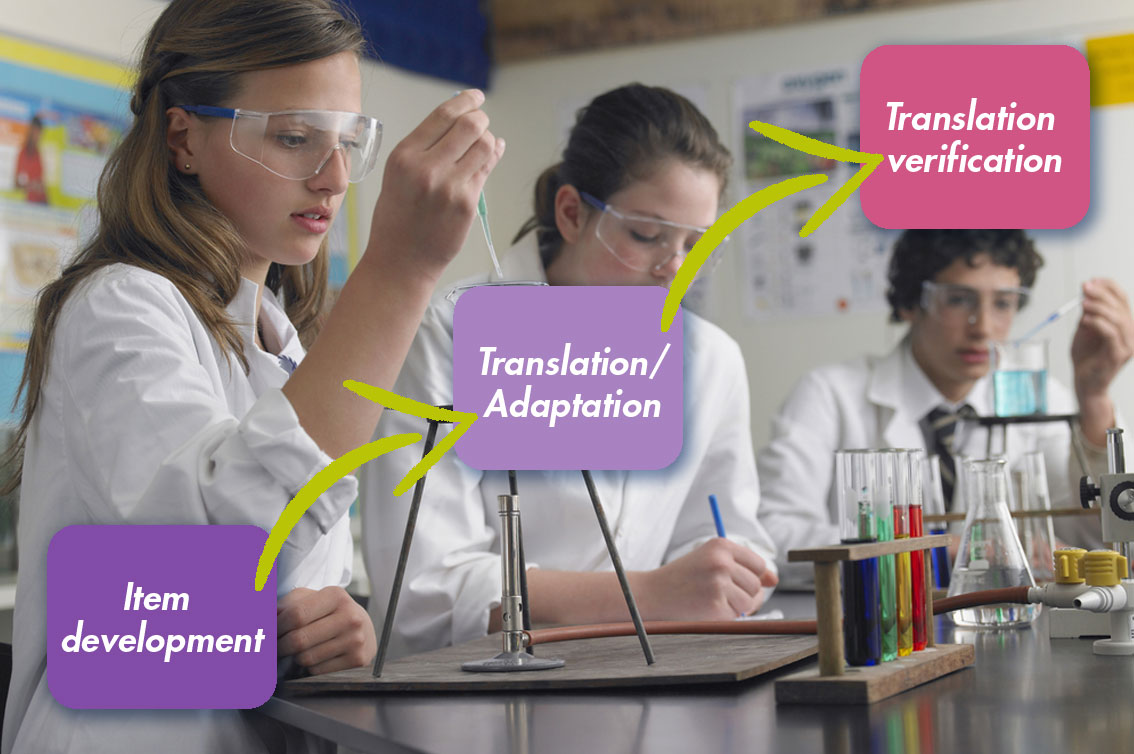
The translation and adaptation journey of a TIMSS grade 8 science item
by Pisana Ferrari – cApStAn Ambassador to the Global Village The IEA’s Trends in International Mathematics and Science Study (TIMSS) is a series of international assessments of the mathematics and science knowledge of students around the world, administered every four years. TIMSS 2019 was conducted in 64 countries and 8 benchmarking systems. The outcomes of …
“The translation and adaptation journey of a TIMSS grade 8 science item”
Read More
What are “intervention categories” and how can revisers use them to improve translation quality?
by Pisana Ferrari – cApStAn Ambassador to the Global Village How do you define “translation quality”? How can it be measured? In a recent live webinar cApStAn’s CEO Steve Dept explained how “intervention categories” used in a translation verification process can help report on translation quality in a standardized way and generate meaningful statistics. Translation …
“What are “intervention categories” and how can revisers use them to improve translation quality?”
Read More
Trend Measurement in International Assessment Surveys
by Andrea Ferrari – Senior Associate In international surveys in general and in comparative assessments in particular, investigators are interested in collecting data about knowledge, skills and competences of a given population at a given point in time. In addition, if periodical data collections are planned, it is of great interest to also measure change …
“Trend Measurement in International Assessment Surveys”
Read More
Rejection of patent filing could have been avoided with a translatablity assessment
by Pisana Ferrari – cApStAn Ambassador to the Global Village A patent filing by Swiss pharma company IBSA (Institut Biochimique S.A.) has been rejected in a US Court ruling which found that the certified English translation of the Italian term semiliquido was “indefinite”, as the English term “half-liquid” could be construed as several things. This …
“Rejection of patent filing could have been avoided with a translatablity assessment”
Read More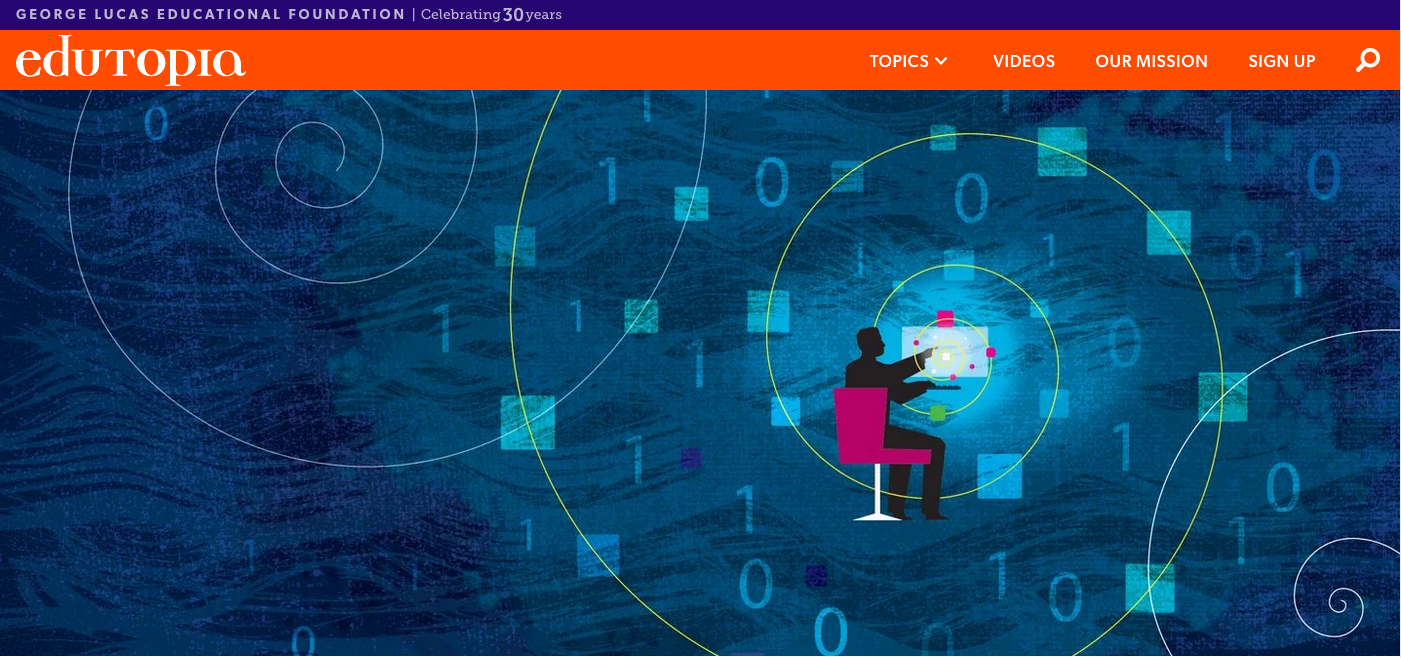
Edutopia’s review of top 10 education studies in 2020 covers topics from virtual learning and racial bias in grading to impact of air pollution
by Pisana Ferrari – cApStAn Ambassador to the Global Village “Edutopia Online” is produced by the George Lucas Education Foundation (GLEF), a nonprofit organization that documents and disseminates stories about best practices in K-12 public education. Edutopia has reviewed hundreds of educational studies carried out in 2020 and singled out 10 to be the most …
Read More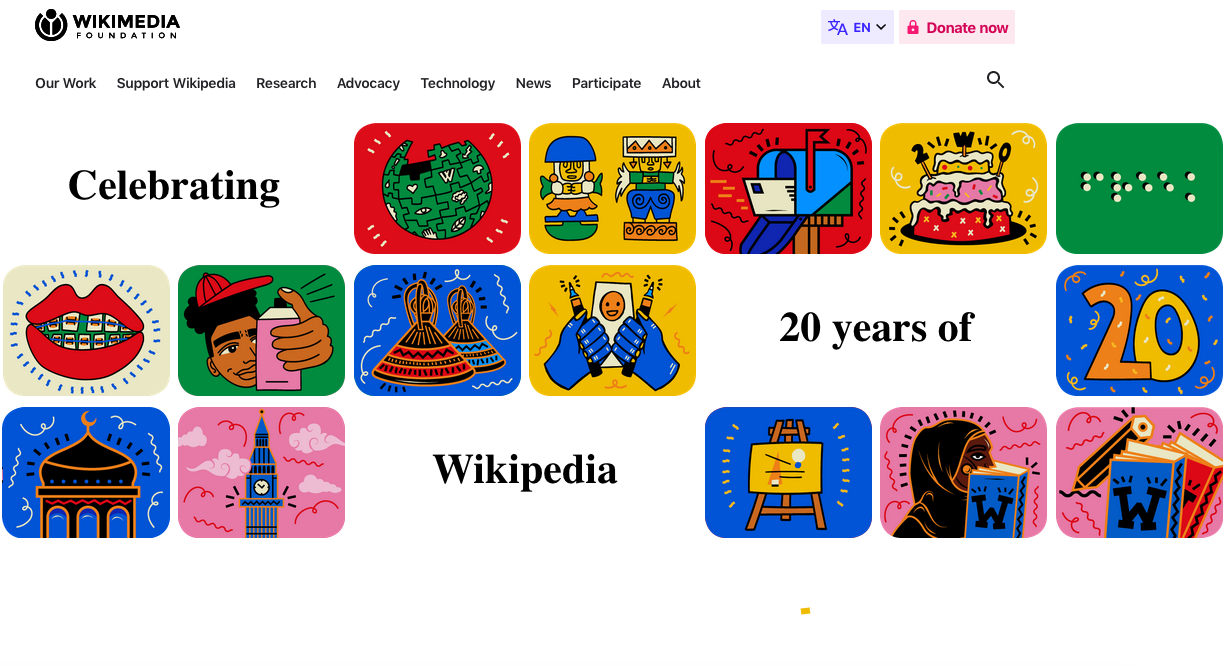
Wikipedia’s 20th anniversary revives debate about its reliability and the need for critical thinking skills in students
by Pisana Ferrari – cApStAn Ambassador to the Global Village Wikipedia, the online encyclopedia, turned 20 on January 15. With its 55 milion articles in 300 languages it is the 13th most visited page on the web. Wikipedia entries are generally in the forefront of preliminary web research on almost any topic. The very feature …
Read More